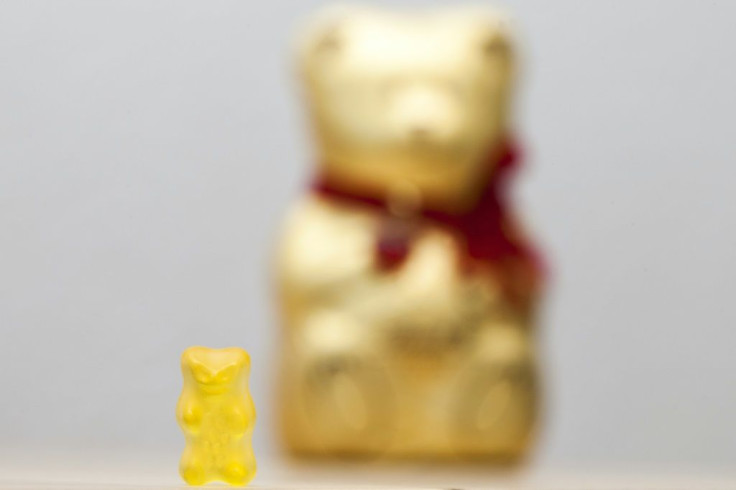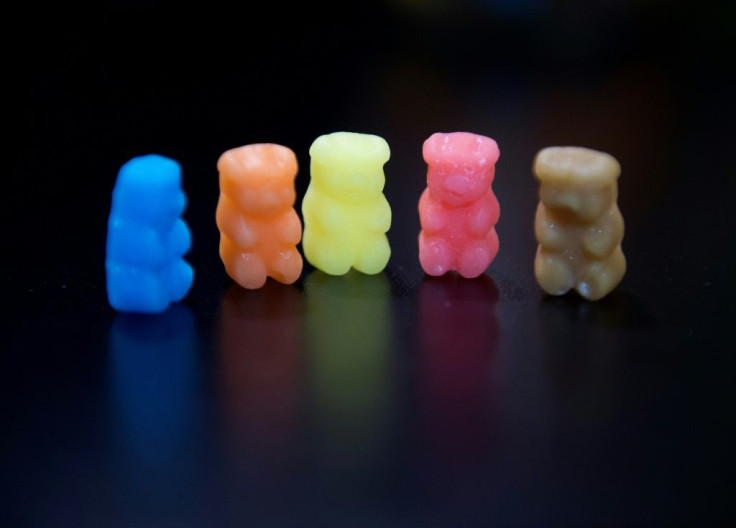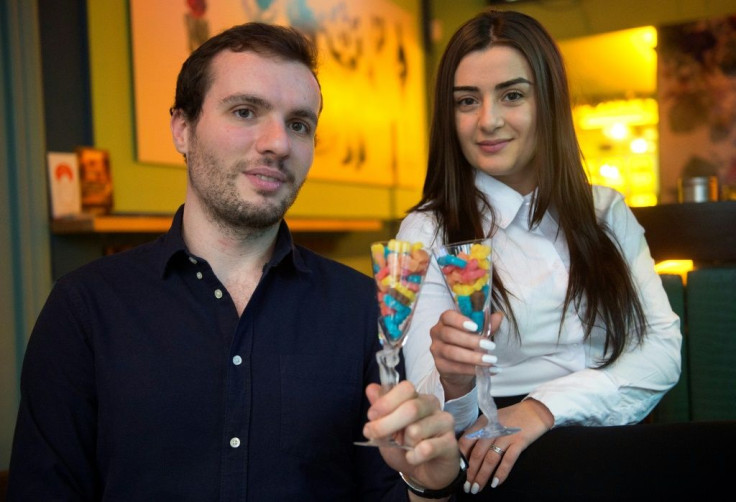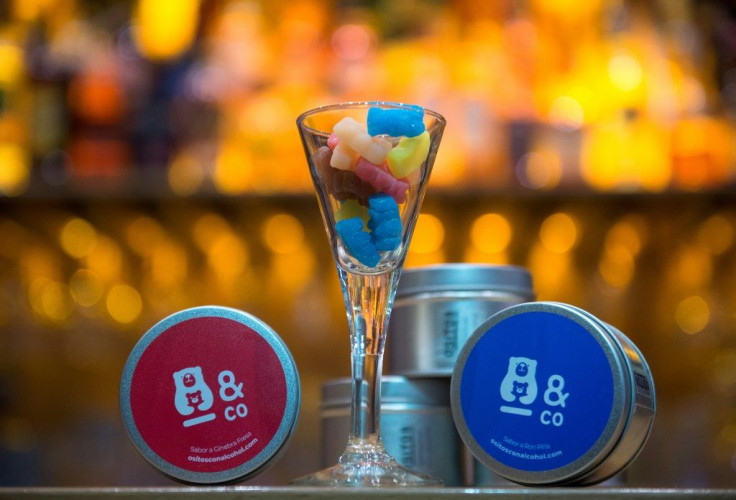Spain's 'Drunken Gummy Bears' On Edge As Haribo Bares Its Teeth

Ander Mendez and his friends were hoping they'd struck it rich when they came up with the idea of selling alcohol-infused gummy bears -- until they found themselves in the sights of sweet giant Haribo.
Now, these three Spaniards say they're afraid of being shut down by the German confectionery king, which is famed for its vast array of jelly sweets and was founded 100 years ago in the western city of Bonn.
In a not-so-sweetly worded legal letter, Haribo has accused their startup of infringing its trademarked little bear.
But these graduates from the northern Spanish port city of Bilbao insist they will carry on producing their "drunken gummy bears" -- "because people like them."
The conflict arose from the apparent similarities between the fruit gums created a year ago by their startup, Osito & Co, and the miniature jelly bear that has become Haribo's best-known product.
With a manufacturing setup in Spain's northern Basque Country, the trio created a premium product in five different flavours that come in stylish metal tins that hold 30 sweets and retail at nine euros ($10).
Each is colour-coded to denote different flavours: blue for rum and pineapple, pink for gin and strawberry, orange for vodka and orange, brown for whisky and coke, and yellow for tequila and lemon.

Haribo's chewy confections are alcohol-free and sold thousands of shops across the world, from Europe to China, Australia, Brazil and the United States.
"As normal in such cases, Haribo has started judicial proceedings to protect its registered trademarks," a spokesperson for the company told AFP.

But for Mendez, who heads Osito & Co, it was a huge shock when he received a "cease and desist" letter from a law firm working on behalf of Haribo.
"It like was a bolt from the blue," the 24-year-old engineering graduate told AFP.
The six-page letter "explained in very threatening English that we were copying their trademarked product, that what we were doing was unfair competition," he said.

"At the end, they said they wanted to resolve the matter amicably," he said.
The letter, a copy of which was seen by AFP, demands that Osito & Co halt all manufacturing, sales and advertising of their product, destroy all promotional material, both online and off, cancel its Spanish trademark application and that it transfer ownership of the domain name, ositosconalcohol.com, to Haribo.
"We're not doing any harm to their brand and the bears don't even look similar," insisted Mendez, accusing the sweetmaker of trying "to take over" the startup's creation.
In 2012, Haribo took legal action against Swiss chocolate-maker Lindt, saying its hollow chocolate teddy bears wrapped in gold foil were an imitation of its products.
But following a long-running legal battle, a German court ruled in Lindt's favour, saying the chocolate bears could not be mistaken for Haribo's jelly sweets.
Osito & Co, which sells its products online and at entertainment venues in Spain -- mostly in the Basque Country -- was set up by Mendez and two of his university friends, fellow engineer Julen Justa, 25, and Tamar Gigolashvili, a 24-year-old law and management graduate.
It began operating exactly a year ago and quickly won an innovative enterprise grant awarded by the local authorities in Getxo, an upmarket coastal town near Bilbao.
At the time, the award generated some controversy with opposition figures saying the product would encourage the consumption of alcohol among youngsters.
Each of the tiny treats contain 15 percent alcohol, with seven to nine of them equating to a 150 ml glass of wine, while 15 to 17 would be the equivalent of a gin and tonic, Mendez explains.
All three are currently mulling the letter "very carefully" with the help of a lawyer without knowing yet what they will do, and in any case, acknowledging they "don't have enough resources to take on a legal case".
For now, though, they will keep on marketing their products "as we have done until now", he says.
"We will try and ensure that this festive spirit that runs through our veins will make it into bars, clubs and cocktail lounges."
© Copyright AFP {{Year}}. All rights reserved.



















